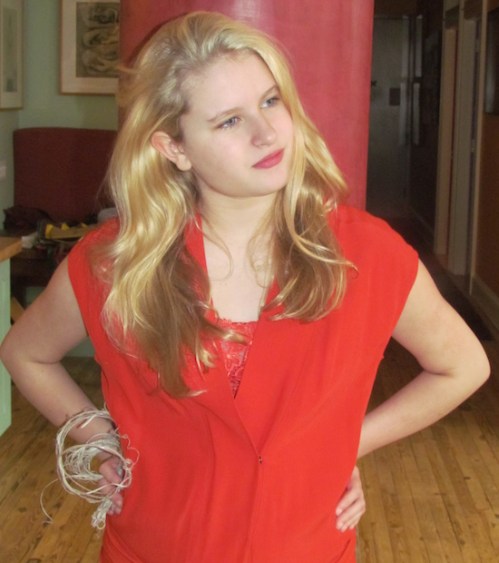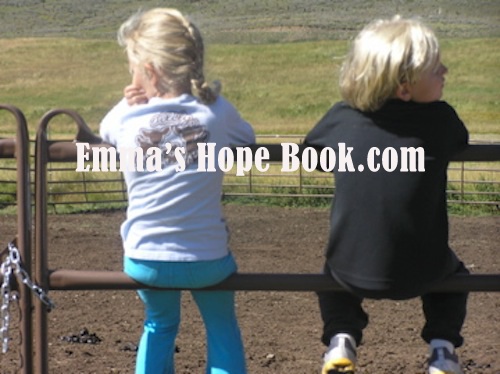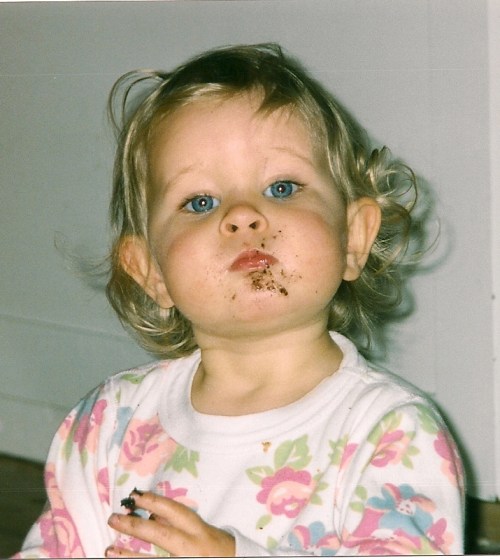I wrote about some of these ideas before in the Fantasy For Autists post a couple of weeks ago. This is a follow up post, a fantasy for parents of newly diagnosed autistic children.
When Emma was first diagnosed I felt fear more than any other emotion. It was overwhelming and crushing. The word “autism” carried with it a weighty sense of doom. People have described it as akin to receiving a “life sentence,” it was a word I knew almost nothing about, and what I did know wasn’t good. “We don’t know what causes it,” “There is no cure” were the words we were told many, many times by the various specialists we went to, seeking help for our beautiful, happy, fiercely independent daughter. Those words were said matter-of-factly, but the grim set of the lips by those who spoke those words belied the truth, it seemed. Some specialists would follow those words with a sad shake of their head, often done while uttering, “I’m sorry” as they ushered us out of their office. The doctor’s appointment now over, we were left standing alone, confused, terrified and overwhelmed by what we could not understand, by what could not be explained, by what seemed like a dark cloud enveloping every aspect of our lives.
Then there were the depictions in the media of the devastated families struggling to make ends meet, the scary images of the perseverative, stimming children in full meltdown, family members run ragged, siblings, silent and resentful, spouses angry and argumentative, and the autistic child, always somewhere in the background, seemingly oblivious to all the chaos they supposedly had created within, what would otherwise have been, the perfect American family, had they not been born. While this may help with fund raising by preying on people’s fears and pity for those less fortunate than themselves, it is these depictions that the newly diagnosed child and her family will see.
Can we take a moment and consider how these depictions make the newly diagnosed child feel? What message is being sent? This child that everyone is so sure isn’t picking up on any of this, but perhaps is. What if that child understands a great deal, even at the young age of a year and a half ? What if that child is extremely intelligent and feels the overwhelming sadness their very existence seems to be causing their family? What if these feelings are then intensified by the things that are said between family members in front of the child or within hearing distance of the child? How would this affect the CHILD? Think if you grew up feeling you were a mistake, damaged and broken? What if the words that were used about you and to you were said with anger, exasperation and annoyance? What if instead of being given the help you so desperately needed, you were told that the things that helped you concentrate and focus were wrong? What if you were told almost everything you did was wrong? Would that help you do things differently?
These negative images are also what will flash through the minds of the parents as they are given the “dreaded” diagnosis. Listen to any newscast about autism. The way the news anchors say the word – “autism” – the voice lowers, there is often a hesitation before the word is spoken. Look at the statistics, the alarming statistics that cause everyone to feel frightened, because we know so little, so we fall into fear, fear of the unknown, fear of what might be, fear of the future, fear of the present, fear. Is all of that fear helping any of us? Does fear help us as parents do a better job parenting our autistic children? Does the fear give you patience, does it help you when your child is unable to express themselves and so acts out? Does that fear make any of us behave better, more appropriately? Does the rampant fear help us sleep at night? How’s all that fear working out for you? Does it help? And if you think it does, I’d love to know, how?
But what if this was not the way families were introduced to autism? What if instead of sitting with the sympathetic, yet professionally aloof specialist the family was introduced to a group of self appointed adults, all of whom were autistic. What if these adults were verbal and nonverbal, women and men, spanning a wide range of ages? What if each Autist “spoke,” whether through language or by typing or through a voice activated device? What if the families were able to ask questions and were allowed to approach these Autists and even were able to have one or two or more assigned to them, the way a social worker is now, during Early Intervention? What if those Autists were available to the family and their autistic child? What if these were the people the family could turn to when they had questions, needed help finding resources, schools, methodologies or just wanted to check in with someone who might understand their child better than any pediatrician, psychologist, developmental pediatrician or neurologist could?
What if each Autist was given an opportunity to discuss what it was like for them growing up, the things that helped, the things that didn’t? What if those Autists discussed how to teach life skills? What if each family went away from this initial “welcoming” meeting with a folder that included a handbook written by Autists, a list of resources of Autistic doctors, neurologists, pediatricians, Autistic run schools with curriculum approved by Autists and others designed by Autists, and a list of some of the essential things parents need to know and remember as they help their autistic child live and thrive? What if, instead of being bombarded with frightening stories of self injurious nonverbal children we were shown videos of nonverbal Autists helping those children learn how to cope? What if we were shown videos and news programs about all the Autistic adults who are pursuing their passions? What if there were Autistic lawyers, neurologists, accountants, pediatricians, veterinarians, Occupational Therapists, Speech Therapists, Teachers, Educators, Head Masters, scientists, musicians, singers, performers, painters, writers, that we were all exposed to and knew about? How would this change how we viewed our own children? What if we were given the support we needed to help our children reach their potential without sadness, fear and pity? What if?
My wish for Mother’s Day is that one day this will no longer be a far-fetched fantasy, but will be a reality.
To read my latest piece, Emma’s New Shoes, in the Huffington Post, click ‘here‘
And if you haven’t already done so, do vote for Emma’s Hope Book by clicking this ‘link‘ and clicking on the “like” button opposite Emma’s Hope Book.







